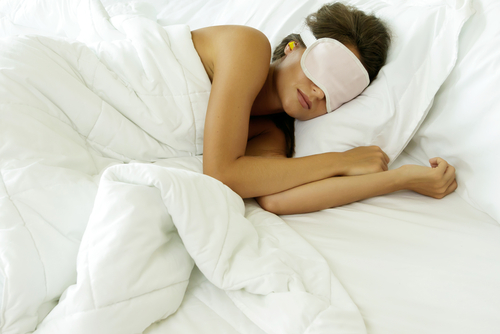Sleep is one of the most important things, along with proper nutrition and exercise. However, more than 1.2 billion people suffer from a variety of sleep issues that are related either to sleep deprivation or a health disorder.
Only in the US between 50 and 70 million people suffer from a chronic sleep disorder, and more than 35% of adults get less than the recommended seven hours of sleep each night, which affects their everyday life.
Sleep Through History
The first scientific theories about sleep were formulated in 470 BC in Greece. In 1903, the first sleeping pills were created, and only 30 years later, more than a billion of these pills were consumed in the United States.
In the 1990s, more than 200 sleep labs and centers were opened to treat sleep disorders among the US population.
Sleep Stages
Every night, your body goes through a sleep cycle 4-5 times, and each cycle is made of five stages that last between 90 and 120 minutes.
The Right Amount of Sleep Plus Daily Naps
According to a study from 2018, the ideal length of night sleep is between seven and nine hours. There are a lot of health-related problems that can occur if you sleep outside the recommended sleep hours. Some of them are:
- obesity
- diabetes
- inflammation
- cardiovascular disease.
Most of us like to take a daytime nap just to feel rested, and the studies show this isn’t a bad thing at all. Daytime sleepiness can increase your chances of developing dementia, sleep apnea, narcolepsy, restless leg syndrome, etc. With this in mind, you know that you shouldn’t feel guilty for making that extra time for a nap that will boost your energy.
A fun fact that you probably didn’t know is that you can take caffeine right before your nap to boost your alertness even more, because it takes around 30 minutes for caffeine to affect.
Improve Sleep Quality
It’s important to fall asleep and wake up at approximately the same time every day, including weekends. Working out is also a very good activity to have at least three times a week, in addition to meditating and relaxing.
All of us like to have a midnight snack when no one is around because eating late at night tastes better when no one is there to judge us. However, having a midnight snack isn’t the smartest thing to do. Our recommendation is that if you want to eat something before bed, do it at least 45 minutes in advance.
Things You Should Avoid if You Want to Improve Your Sleep
You should avoid spicy food at least 2-3 hours before bedtime, as well as sugary drinks, alcoholic beverages, and cigarettes.
How Technology Affects Sleep?
We all know that the blue light from screens isn’t the best for us, especially before bedtime, and we’ve all probably heard stories that we shouldn’t use our phones and other electronic devices at least an hour before falling asleep. Of course, a lot of those stories are proven to be correct.
However, there are some tech innovations that could also help you with sleeping – the so-called sleeping gadgets. Sleeping gadgets are some of the newest and most advanced technological innovations that can help you with almost any problem you might have.
There are sleeping gadgets that can help you with snoring, insomnia, sleepwalking, narcolepsy, sleep apnea, etc.
Bottom Line
Sleep is very important, and we all should stick to this fact. Not having at least seven hours of sleep every night will likely incur several health issues. If you?re struggling to fall asleep at night, you should consult a doctor and then perhaps even try out one of the numerous tech gadgets created to help you with sleep.









